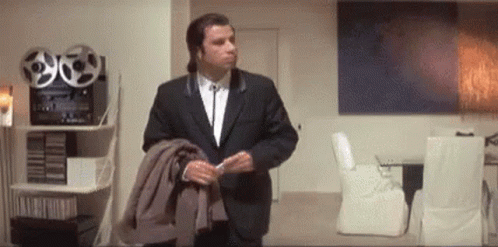If you don’t have any desire to play classical music, then you’re wasting your time studying classical piano. There are many capable, world-changing musicians - including pianists or piano playing musicians - who never studied classical music. Contrary to the ideas many in that field have, classical music is not the be-all-end-all of music.
If you wish to play piano, but aren’t particularly moved by classical music, you’d be doing yourself a big favor by just studying THEORY and TECHNIQUE more than anything. And you can get that, sans classical studying. There are plenty of theory books and theory teachers out there. And contrary to what many advanced classical pianists would have you believe, the technique of a virtuoso is not some endless collective of things. You only have ten fingers, and there’s only so much you can do with them. A virtuoso’s technique is primarily scales/runs/fingerwork - learning to move the fingers up and down and in any combination at high speeds, double notes (seconds, thirds, fourths, fifths, sixths, etc.), octaves, chords, leaps, being able to do these things in any order, and coordinating the two hands to be able to do these things in conjunction and independently. There’s actually not a lot to piano technique - the challenging part is the creative ways great composers, arrangers, and instrumentalists use the very basic foundational fundamentals, and the speed at which they combine them to create music.
Famously, Liszt developed what many regard as either the greatest technique of all time or one of the greatest techniques of all times - by simply practicing the fundamentals: scales, passagework/runs/filigrees/cadenzas, double notes, octaves, chords, leaps. He learnt to do all these things at extremely high levels, interchangeably, in any order, in any pattern, in any combination, with the two hands operating in conjunction and independently. That’s how Liszt went from the Czerny/Beethoven/Mozart standard of technique, to the standard of technique that ultimately bore his name, and, quite frankly, was never surpassed by anyone after him.
Now, yes, Liszt started in what we would consider classical, but, unlike any other composer before him, he, and the other Romantics, led a charge to standardize classical technique in a way that extracted it from the music, and really broke it down. That focus on technique as it’s own entity led to the Liszt exercises, the Isidor Philipp exercises, and, perhaps the greatest of them all: the Hanons, where, like never before, the arsenal of any virtuoso was broken down to its absolute fundamentals, separate from the music. Theoretically, since all of these things have been standardized and captured in minute detail - one could achieve virtuosity, without ever playing classical music.
By learning theory, technique, and applying it to the genre of one’s choice - one could become a virtuoso pianist, yet never have focused or studied classical music.
And there’s plenty of very advanced music in jazz, blues, and in modern/20th Century/avant-garde/21st-Century repertoire that an advanced pianist can play.
_
Now, if one’s goal is to reach the absolute heights of piano technique…then perhaps one might desire to focus on classical music. But only because of the repertoire.
Should the very most advanced playing be one’s desire, there aren’t many other genres that contain music as advanced as classical music, from a technical point of view. There’s nothing in any other genre, of the difficulty of Gaspard de la Nuit, or the 1838 Transcendental Etudes, or the Chopin etudes, or Rachmaninoff’s Second Sonata or his Third Concerto, or Islamey, etc., etc., etc. When I think of even the most difficult pieces in blues, jazz, or in modern genres, I can’t think of any that can compete with the very most difficult things in classical (correct me here if there is any).
So…if being a virtuoso pianist and performer of the absolute highest TECHNICAL order is what one desires - then classical may be the best option, because there one will find works that will most allow one to express one’s super-virtuoso technique.
But, even then, there may be a way around. If one is a composer or arranger, one could create modern works of virtuosity in any genre.
_
So, the question is: what do you want to be?
If you want to just be a pianist, you don’t need to study classical music to do that. You need to study theory, piano technique, and piano performance, and you can do that in any genre. And, there are many schools, such as Berklee School of Music, that focus on isolating those from Classical and embracing them as fundamentals for modern music. And, in fact, for certain genres of music, you may not even want to listen to classical, as certain genres have methods of playing that would be considered unconventional in classical music.
Moreover, you can even become an advanced pianist…and have never studied classical.
Only if you desire to be a pianist at the peak of virtuosity might you find yourself in a circumstance where classical is your best bet - simply, because the repertoire will allow you to realize that greatest technique and play at that absolute highest TECHNICAL level, in a way no other genre does.
Unless, you’re a composer/arranger, in which you can pioneer new, modern works, that are of equal virtuosity as that of the past.
But there’s, in my opinion, nothing stopping anyone from being an advanced pianist, and yet never having touched classical music. One merely has to find the right teachers.
